This is Part 2 of the exclusive four-part Bikezilla interview with James Stout, a professional cyclist formerly with Team Type 1. Part 1 can be read here.
Part 2 – The Team Type 1 Era
Link: Martin Hardie’s letter to TT1 on behalf of James Stout.
Bikezilla:
Martin Hardie is a lawyer, but not your lawyer? He wrote to TT1 strictly as a friend and supporter, right?
James Stout:
Yes, that’s right. Yes. Martin isn’t registered as a lawyer in the U.S. and he can’t represent me there. But he’s been a very good friend to me throughout this thing, when I went through some pretty dark times. Martin’s always been there for me.
Bz:
Is Martin working with you on the case, now?
JS:
He’s working with me. But, as I said, Martin is not a lawyer in the U.S.
But I still turn to Martin for a load of advice, with regard to lots of things.
He advises me in the capacity of someone who I trust.”
Bz:
How long were you with TT1, altogether?
JS:
Two years.”
Bz:
I remember reading somewhere that the first year was actually pretty good.
JS:
Yeah, it was fantastic! I loved it!
That’s why this year I was incredibly enthusiastic.
During any of my interviews from last year you’ll see that I wasn’t just on the team, but I was all about the team. It meant a lot to me. The diabetes things meant a lot to me. The team meant a lot to me.
I was passionate about TT1.
Bz:
Were you performing well? At a high level at the time?
JS:
Yeah! I mean, we won the Race Across America, I won a criterium last year, I finished a few tough races in Belgium. So, yeah, things were all roses, until January of this year.”
Bz:
How did you go from point “A”, happily employed as a professional cyclist, to point “C” unemployed and at odds with your former team? We seem to be missing something important in between.
JS:
I wasn’t really making anything public, because I was told not to by the team. I thought everything would be okay.
And it turned out that everything wasn’t okay.
At some point I realized that things weren’t gonna be okay. I had spoke to Martin and Martin gave me advice and we tried our hardest to resolve things amicably and it wasn’t working. So, at some point we had to reveal everything that happened, into the public sphere. We had to, unfortunately, publish some things.
TT1 still means a lot to me. I don’t want to run that name into the ground. But they didn’t act in a manner that was consistent with the image which they portray and at some point you have to be accountable for your actions.
So, after five months of not receiving a paycheck, when I lived in my car, moved out of my house because I couldn’t pay rent, when for months I didn’t have a visa in the U.S., when I had to return to Europe at my own expense, I realized that the only way I was ever going to salvage anything out of this situation was to publish what I did publish on Martin’s website.”
Bz:
At what point, or how, did it begin going from good to bad?
JS:
Well, there was a delay with the visas, a delay with pay. Eventually I never received any pay, from January of 2011.
From then on I tried my best to reach out to the team and I asked what was going on. At first they just told me, ‘it’ll be sorted, it’ll be sorted.’ And I trusted them because I thought they were my friends . . . well, long story short, I shouldn’t have trusted them, at least in that capacity. Because, I still haven’t received a penny.
That got worse and worse. At first it’s one month without pay, then you can’t afford the rent on your house, then you’re sleeping on your friend’s couch, then you’re living in your car, then you’re selling all your shit to buy food.
Then one day you realize that it’s not happening and you need to go home.”
Bz:
In your own writing and even in articles about you, your politics are front and center. Was that ever a source of conflict between you and the team? Was there a grind between your way of thinking and team owner Phil Southerland’s way of thinking?
JS:
I can’t say that there was, because Phil hasn’t communicated with me for months. And the reason I was dismissed was not officially that.
But, it’s clear, as you say, that I wear my heart on my sleeve and if I feel something then I say that. Some people might not like that. I don’t know if he’s one of them and I wouldn’t like to presume to speak for him.
But it’s not beyond the realm of possibility.”
Bz:
Whenever you were face to face with Phil, was there any friction? Or did it seem that things were ok?
JS:
No, things seemed okay.
The day before I left the United States I rode 100 miles with Phil. We chatted. It was okay.
I mean, Phil was never like my best buddy and I didn’t see him that much. But, yeah, I turned to Phil for advice.I used to turn to Phil for medical advice all the time. There have been times when I’ve rung Phil at two in the morning to ask him what I should do with my insulin.”
Bz:
When things started turning, did he confront you? Or did he just kind of disappear out of your life?
JS:
Ummm, he’d occasionally send me a couple of official emails. They were always in official language. And then he just hasn’t really spoken to me.
When my contract was terminated, etcetera, that never came through Phil.
So, since things have started really turning, I’ve not heard from Phil.”
Bz:
Phil started out as a mentor, almost a friend, and then he just vanished?
JS:
Exactly, yeah. Yeah. I don’t really hear from him.”
Bz:
And you were never really aware of the reasons behind that change?
JS:
No. No, I don’t know what I did to him. I considered him a friend at one point, and I wouldn’t go that far now.
I don’t know what I did to warrant that.”
Bz:
Were you on the team at the same time as Willem Van den Eynde? (Editor’s note: See this article from the Belgian sporting website, SportWereld, by Bert Heyvaert about TT1 pro cyclist Willem Van den Eynde. This link to the Cyclingnews.com forums contains a better Flemish-English translation than that provided by Google.)
JS:
No. No, all I know about Willem is what you’ve read on Cycling News.
I’m afraid I’ve never even met Willem.
I’ve raced in Belgium, and I’ve never even seen another diabetic bike racer in Belgium. So, maybe he’s not in the sport any more.
I’m afraid what I know about Willem is what you know about Willem, or anyone else who’s read the Cycling News.”
Bz:
His story is very similar to yours. His medication was withheld, he was forced to sleep on the floor of Southerland’s hotel room. This is all public stuff, I’m not speculating about it.
He was denied food, berated by management, and he didn’t really understand what was going on, either.
Were you aware of other similar stories? More than just yours and Willem’s?
JS:
Not of that kind of thing. But obviously when you’re on a team they don’t say, ‘Hey, do you know about this guy and this guy and this guy?’ So, if that had happened I’m sure that I wouldn’t have heard of it.
But I’m not aware of any other stories in the same light.
With the delays in our visas, that didn’t only affect me. But I wasn’t aware of anyone in the exact situation.
Bz:
Van den Eynde’s case was resolved successfully through the Belgian cycling federation and UCI. Have you attempted to seek a settlement or arbitration through your own national federation? Have you contacted the UCI? If so, what were the results? What’s the status of your claims against TT1?
JS:
Yes. I was licensed through the USA cycling federation. I’ve been in touch with them and received no help and no response.
Likewise Pat McQuaid (President of UCI – Bz), likewise UCI.
That disappoints me, I’m not going to lie.
There are a mountain of organizations who are designed to catch riders cheating, move bikes around, enforce all the rules.
There should be an organization which supports the riders. There should be a (formalized – Bz) union of professional cyclists, which will step in on riders’ behalf.
I really strongly feel that.
I’m now with the Spanish federation. Previously I went through USA Cycling. British cycling, in their wisdom, refused to grant me a license when I wasn’t living in the U.K.
Which is total bullshit. Hundreds of riders who aren’t resident in the U.K. have British licenses; Mark Cavendish, David Millar, Bradley Wiggins, Geraint Thomas. Those guys don’t live in London or Oxford. Everyone lives in Italy or France or Spain.
For whatever reason an official in the USA decided to kick up a fuss about me being registered in the U.S. from a British license even though I spent half the year in the United Kingdom.
So I was forced to federate with the USA Cycling federation, who have not been that helpful in this case.”
Bz:
Have you tried to get help from that Spanish federation?
JS:
Because I wasn’t licensed by the Spanish federation [RFEC – Bz] at the time, I haven’t. But, they have been entirely supportive in all my interactions with them. As far as processing my license, helping me find teams, helping me get carpooled to races. I can’t fault the Real Federación Española for anything.
I think that, whatever you want to say about Contador, they stick up for their riders. Until they’re proved to be guilty.
There are enough people who exist, as I say, to persecute the riders. I strongly believe that what they (RFEC – Bz) do is right. They stick up for their riders. I can’t speak highly enough of them.” [Editor’s note: Since this interview occurred, RFEC has agreed to help James with his case – Bz.]
Bz:
RFEC is an advocate for its riders?
JS:
Specifically my interactions have been with the Catalan federation. Things have been great.
“They supported Contador. I know there are cases where they haven’t supported riders. So I don’t know if this is a change of policy. I know they supported Valverde, as well.
But even down to the fact that they make you take a physical before they give you a license, because it makes sense to check if you’re healthy before they take your money, not just take your money and watch you drop dead in a race.
Bz:
Who was your DS?
JS:
Director with the development team was Jack Seehafer. The year before that, with the elite team, it was Bob Schrank, who I cannot speak highly enough of.
Bob is one of my best friends in the whole world. Bob is someone who I still turn to even though I’m not with TT1. If I have a problem, he’s someone I call.”
Bz:
So up to the DS level you felt pretty supported?
JS:
Yeah, highly. They were good people, reeeeally good people.
My father suffered some mental health issues in the past twelve months. I knew.
I was 23, 22. You still need a father figure to look up to, and a lot of those guys on TT1 are people who I did look up to. People who I could turn to for help when I didn’t know what to do because I haven’t been alive long enough.
Those guys who I met through TT1 were people who filled in for my dad in a way when my family was so far away.
They’re good people and they’re people who have done a lot for me.”
Bz:
It’s rumored that treatment of riders was tiered, that those riders who won more, were treated better, given more and better food, medical supplies, shelter. Is there an accuracy to that?
JS:
Ummm, nope.
I wasn’t living with the team. I was living by myself in California. But until the medication stopped I was receiving the same medication as everyone else. I followed two medications, the best on the market.
There were issues with getting bikes out on time, with getting kits out on time. I wouldn’t say that was tiered treatment by any means, but I’d say it was just poor organization.”
Bz:
Because of your lack of medication did your own performance suffer?
JS:
Oh yeah! I was creeeeping. If you don’t take your insulin for a week you’re about to go blind. You don’t take your insulin your kidneys will shut down.
It’s not just about your performance, it’s your ability to stay alive. The insulin is absolutely integral to to your survival. Without insulin the diabetic cannot survive.”
Bz:
How did it work, did your performance drop after they cut off the insulin? Or did they cut off the insulin when your performance dropped off?
JS:
One day I just received an email saying I wasn’t going to get insulin any more.
Pretty much I continued to use supplies that I had. I started having problems a couple months after that.
It wasn’t just the lack of insulin it was also the stress that I was dealing with. I mean, I hadn’t been paid, I was living in my car, I didn’t know where my next meal was going to come from, I hadn’t received any race schedules.
I think lack of insulin combined with just a ton of lifestyle issues.
I mean, my performance wasn’t great. But, because I wasn’t racing I wasn’t resting enough. I beat shit into myself training, which was my fault.
My performance may or may not have decreased. They would never have known, because they never took me to any races.”
They stopped it [taking him to races – Bz] in 2011 because I never got my visa. You can’t be cycling professionally if you don’t have a visa to be a professional cyclist.
Bz:
How did that work? Or how was it supposed to work? Do they typically help you get your visa?
JS:
That was their obligation. I have a contract that states that they’re the employer and it’s up to them to get a visa.”
Bz:
How did that fall apart?
JS:
I don’t know exactly what happened. But, there was a horrendous delay so that the visa didn’t come ’til April.
I was continually being told, ‘it’ll come in five days, it’ll come in five days, it’ll come in five days.’
So, why that happened, I don’t know.”
Bz:
In April you finally got the visa?
JS:
I was on a student visa at UCSD and I went to change to a professional athlete visa and that never came. I took a sabbatical to ride full time.
In April the visa was approved provisionally. I then had to go back to the United Kingdom to conduct an interview and collect the visa.
Previously TT1 had told me I’d be able to do that in the U.S., but it turned out you can’t do it in the U.S.
So I returned April 11th, which was the last day I was legally able to remain in the U.S. on my old visa.
I left the U.S. and came to the U.K. in order to pick up my visa, thinking I’d be back in a couple of weeks. So I brought one bag of clothes and my bike.
At that point they terminated my contract.”
Bz:
At what point did the insulin stop?
JS:
The insulin stopped in March.”
Bz:
With TT1’s connections to pharmaceutical companies, they would seem to have easier access to doping products through the back door. Were you aware of doping occurring on any level by any rider or with the knowledge or consent of any staff, management or ownership personnel?
JS:
That’s not something I want to comment on right now. I never saw anyone taking any performance-enhancing substances. But I don’t want to talk about doping on TT1 at the moment if that’s ok.”
Bz:
I’ve heard that TT1 is being investigated for insurance fraud. Were you aware of that? Have you been contacted about it? Do you have any information about it?
JS:
“I wasn’t aware that they were being investigated for insurance fraud.
It upsets me to read shit about TT1, because I get angry so I try not to. Because I’m torn between really resenting what they did to me, and wanting my friends to do well. And it really upsets me.
There are individuals who I hugely resent the way they treated me. There are other individuals who are some of my best friends.
It upsets me when I see my friends cooperating with people who I know have done such horrible things. So, I try to avoid any type of interactions with TT1. I just try to keep them out of my life as much as I can.”
Stay tuned to Cyclismas for Part 3 of Bikezilla’s interview with James Stout, coming next week.
You can follow Tom on twitter at @Bikezilla1, and read his Bikezilla blog, “Ride the Puddles.”



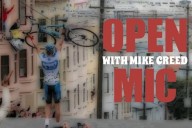



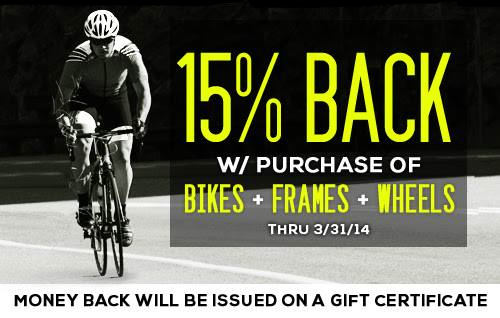

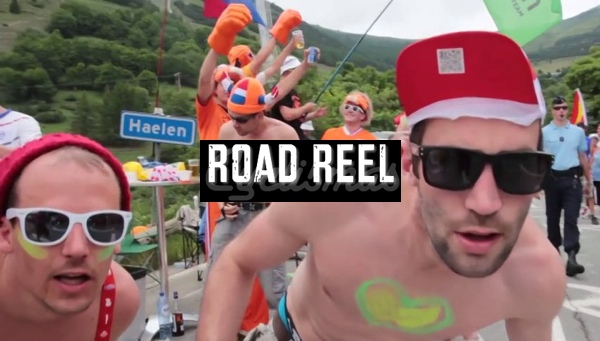
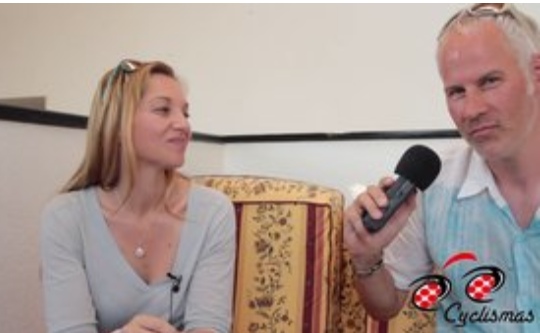

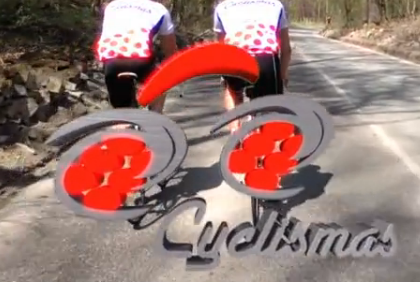

8 Comments
How anybody could take this interview serious is beyond me. This kid has the reputation of a liar and a talentless cyclist. Plus, it sounds as if the interviewer is just trying to start a bunch of rumors about one of the few teams that is actually trying to do something good in cycling.
We appreciate your comments. We firmly believe there are two sides to every story, and sometimes someone needs to tell the story of the David when dealing with a Goliath. We’re also happy to talk to Team Type 1, however, that has not happened to date. Our interviewer has also done has research and vetted the answers given.
Thanks, AJohnson.
I was concerned about this being a case of one bitter troublemaker out to bash his boss after the relationship went bad. But as I looked into things I saw that this seems to be a lot more than just one guy, no matter what that one guy’s personality may be. This looks to me to be a serious and disturbing pattern.
I’ll talk more about my thoughts and feelings on this matter in an article to be published sometime after the complete interview is up.
@Bikezilla I think is doing the right thing in this interview, for sure. While there are always two sides to every story, I think that this demonstrates a non-leading interview. TT1, as I understand it is a much bigger organization than just the PRO cycling side of the house.
Perhaps there is a upper-management to team management issue none of us know about? We all conjecture, including @jamesstout in his answers as to why things went down the way they did.
TT1 seems to be doing the right thing, generally, so maybe they will make everything right in the end. Time will tell.
The bigger issue this interview highlights, as James mentions, is that many riders are and have encountered too tough a time while working with team management on compensation and work rules issues. Clearly, an effective trans-national rider’s union is really needed to protect riders rights and careers.
@Bikezilla I think is doing the right thing in this interview, for sure. While there are always two sides to every story, I think that this demonstrates a non-leading interview. TT1, as I understand it is a much bigger organization than just the PRO cycling side of the house.
Perhaps there is a upper-management to team management issue none of us know about? We all conjecture, including @jamesstout in his answers as to why things went down the way they did.
TT1 seems to be doing the right thing, generally, so maybe they will make everything right in the end. Time will tell.
The bigger issue this interview highlights, as James mentions, is that many riders are and have encountered too tough a time while working with team management on compensation and work rules issues. Clearly, an effective trans-national rider’s union is really needed to protect riders rights and careers.
Bikezilla I think is doing the right thing in this interview, for sure. While there are always two sides to every story, I think that this demonstrates a non-leading interview. TT1, as I understand it is a much bigger organization than just the PRO cycling side of the house.
Perhaps there is a upper-management to team management issue none of us know about? We can all project on what the problem may be, but its only conjecture. Even @jamesstout in his answers, could not be totally clear as to why things went down the way they did.
TT1 seems to be doing the right thing, generally, so maybe they will make everything right in the end. Time will tell.
The bigger issue this interview highlights, as James mentions, is that many riders are and have encountered too tough a time while working with team management on compensation and work rules issues. Clearly, an effective trans-national rider’s union is really needed to protect riders rights and careers.
Bikezilla I think is doing the right thing in this interview, for sure. While there are always two sides to every story, I think that this demonstrates a non-leading interview. TT1, as I understand it is a much bigger organization than just the PRO cycling side of the house.
Perhaps there is a upper-management to team management issue none of us know about? We can all project on what the problem may be, but its only conjecture. Even @jamesstout in his answers, could not be totally clear as to why things went down the way they did.
TT1 seems to be doing the right thing, generally, so maybe they will make everything right in the end. Time will tell.
The bigger issue this interview highlights, as James mentions, is that many riders are and have encountered too tough a time while working with team management on compensation and work rules issues. Clearly, an effective trans-national rider’s union is really needed to protect riders rights and careers.
I’ve known James for two years and hold him in the highest regard. Truthful, hard working and witty. Great interview.